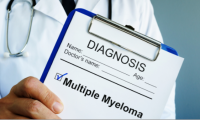-
EU’s IVD guidelines continue affecting early clinical work
- Source: drugdu
- 99
- December 4, 2023
-
Phase 3 Trial for GSK’s Blenrep Yields Positive Results in Relapsed or Refractory Multiple Myeloma
- Source: drugdu
- 104
- December 2, 2023
-
Amgen and MSD-backed start-up wins $10m for drug and device development
- Source: drugdu
- 141
- December 2, 2023
-
Pharma’s engagement with healthcare providers has slipped in recent years
- Source: drugdu
- 124
- December 2, 2023
-
Pepper wins $6.5m to develop ‘transomic’ drug discovery platform
- Source: drugdu
- 96
- December 2, 2023
-
MS Expands Cardio Partnership with Avidity in Potential $2.3B Deal
- Source: drugdu
- 106
- November 30, 2023
-
FDA investigates ‘serious risk’ of secondary cancer following CAR-T treatment
- Source: drugdu
- 230
- November 30, 2023
-
White Bagging Policies Endanger the Lives of Cancer Patients
- Source: drugdu
- 99
- November 27, 2023
-
White Bagging Policies Endanger the Lives of Cancer Patients
- Source: drugdu
- 152
- November 25, 2023
your submission has already been received.
OK
Subscribe
Please enter a valid Email address!
Submit
The most relevant industry news & insight will be sent to you every two weeks.













